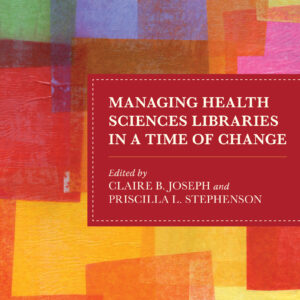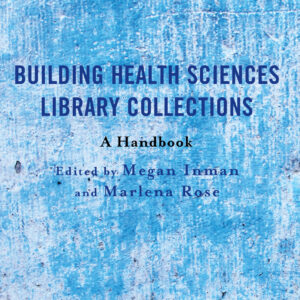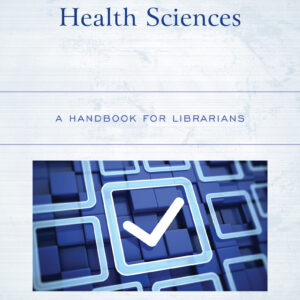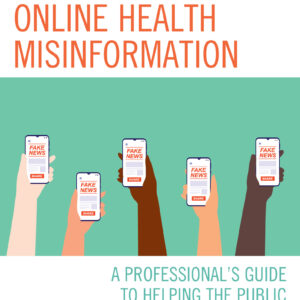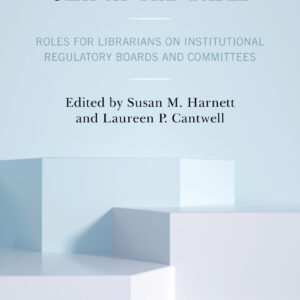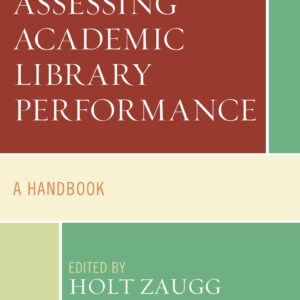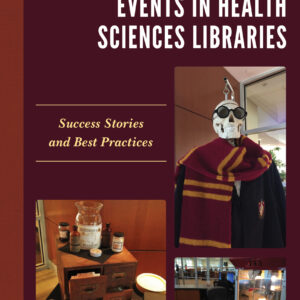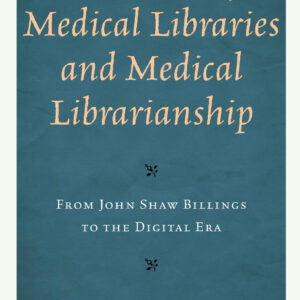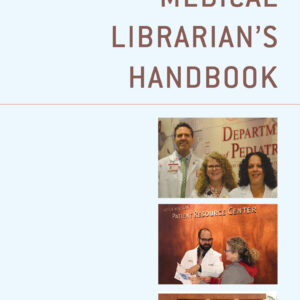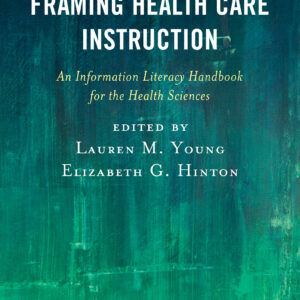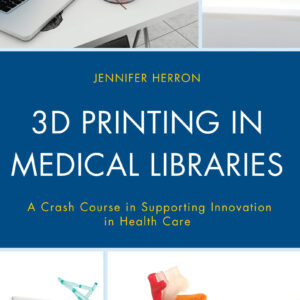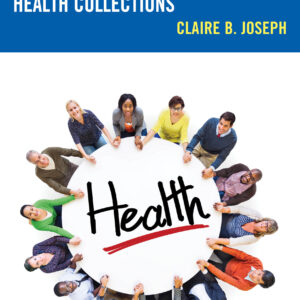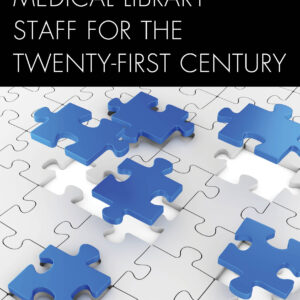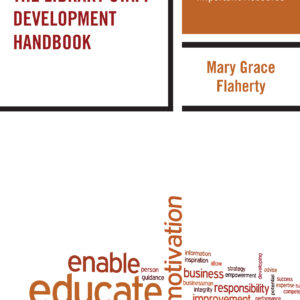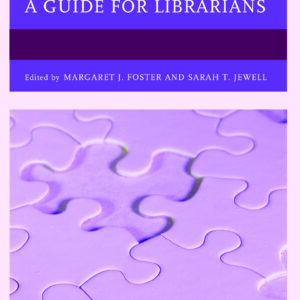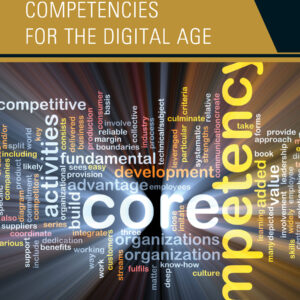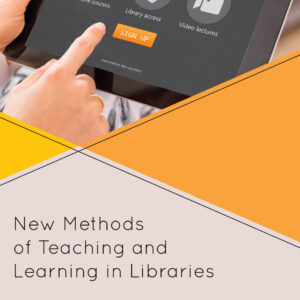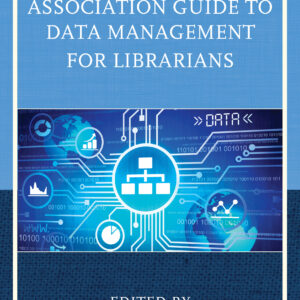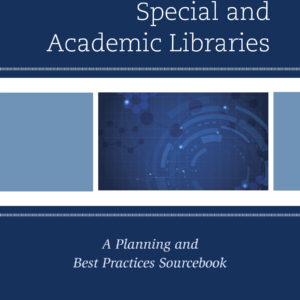MLA publishes books on topics of vital interest to medical librarians and other information professionals. Books are published in cooperation with Rowman & Littlefield Publishing Group and are available in a variety of electronic formats as well as print.
Publish a Book with MLA
MLA is always looking for new book ideas that are of interest to a significant segment of the library community. If you’re interested in submitting a proposal as an author or editor, get started by learning more below! Proposals are reviewed by the MLA Books Panel, an MLA committee.
Seeking Proposals
The MLA Books Panel is seeking authors and/or editors for the following book topics:
- Determining Information Credibility and Trustworthiness
- Evidence Synthesis: Beyond Systematic Review
- Health Science Librarianship Ethics
We strongly encourage authors to suggest a topic at any time by reaching out to the Books Panel.
MLA books showcase the expertise of health sciences librarians for an audience of librarians and other professionals. Ideal topics include mainstream library administration or topics that meet a particular, broad-based need.
The members of the MLA Books Panel solicit and generate ideas for new books and evaluate proposals. The Books Panel works with prospective authors to shape their idea into a proposal that can be successfully published.
Successful proposals:
- have a well-defined approach to a subject
- focus on best practices rather than current practices and answer the following questions: what are the best practices, what are trouble areas, what would you never do again, what are some organizational, models and what are their respective advantages and disadvantages?
How do I submit a proposal? It All Starts With Step One!
Complete a Step One form that requests the following:
- The book’s objectives, type and primary audience.
- Identification of competitor titles and what makes the proposal unique.
- Description of any special features (sidebars, case studies, interviews, figures, charts or tables, or other graphic elements).
- Explanation of how the book will align with MLA values of Diversity, Equity and Inclusion.
- Preliminary table of contents, including an estimate of the number of words for each chapter and the total manuscript. Please specify types and approximate sizes of indexes.
- Target date for completion of the manuscript.
The following illustrate some exemplary samples of Step 1 proposals submitted to the Books Panel:
- Sample Step 1: Judy C. Stribling, Promoting Health: The Past, Present, and Future of Clinical Medical Library Services
- Sample Step 1: Mary Grace Flaherty, Planning & Promoting Library Events: It’s All in the Details
- Sample Step 1: Amanda Scull, Virtual Services in the Health Sciences Library: 2021 and Beyond
If your Step One is approved by the MLA Books Panel and copublisher, you will be asked to submit a Step Two.
What happens to a proposal once it’s received?
The Books Panel meets monthly to review proposals. The decision to accept or reject a proposal is influenced by many factors, including the need for the publication, its potential market, the author’s qualifications (subject knowledge and writing skills), estimated production and marketing costs, and estimated sales. The copublisher may conduct a market survey to determine the level of interest in the proposed book.
What happens when a proposal is approved?
After the MLA Books Panel approves the proposal, the chair sends an acceptance letter to the author on behalf of the panel. However, a contract is not issued until further review by the copublisher. This often includes an outside review of the proposal. The author may be asked to fine-tune the outline. The steps that follow include:
- The copublisher sends the author a contract. Contract negotiations are between the author and copublisher, not MLA. If you have questions about the contract, please contact Erinn Slanina.
- The author is sent an information packet including style guidelines, formatting specifications, and a tentative timeline for chapter submissions.
- A developmental editor reads and responds to the first two chapters in detail and offers the author any suggestions that will make later stages of the writing and publishing process flow more swiftly.
- In general, the copublisher likes to see at least two chapters in the first six months after the contract has been signed and at least half the manuscript in draft form about three to four months before the final deadline.
- Normal book production time is four to six months.
- The completed manuscript is reviewed by the copublisher and invited experts in the field, as needed.
Contracts between Rowman & Littlefield and a book’s editor(s) and/or author(s) will specify that the book is to be copyrighted in the name of the Medical Library Association. Writers who contribute a chapter to a book that is compiled or edited by someone else will retain the copyright to their chapter. Contributed chapters are subject to a 12-month embargo before they can be placed in the author’s institutional repository.
Questions about copyright or rights to either a whole book or a chapter can be directed to MLA’s copublisher, Rowman & Littlefield, represented by Erinn Slanina.
Who are MLA’s publishing partners?
Rowman and Littlefield Publishing Group (RLPG) is MLA’s copublisher for new book projects. The company publishes nearly 1,500 new titles each year, covering virtually all fields in the humanities and social science, including a strong list of library science titles. Books copublished by MLA and RLPG are published under the Rowman & Littlefield imprint.
- RLPG handles all phases of publishing and production—contract negotiation, project management, copyediting, composition, proofreading, and printing—once a manuscript has been approved by the MLA Books Panel.
- RLPG also handles marketing, sales, and order fulfillment.
- RLPG is a hands-on partner with the author.
- RLPG determines all business decisions related to the book.
MLA also works with ALA Neal-Schuman on new editions of existing books.
Panel discussions are entirely confidential. Any materials you submit will be seen or discussed only by members of the panel, the copublisher’s representative, and the MLA Board and staff liaisons.
The Books Panel has a revenue-producing mission. Similarly, our copublisher must sell a certain number of copies of each professional title that it publishes. Books with appeal to all types of medical librarians, as well as of interest to nonmedical librarians, will likely receive the greatest consideration.
When the panel reviews materials for a step one proposal, it evaluates:
- Is the proposal complete? Does it contain all of the elements detailed in the proposal guidelines? Proposals submitted without need, purpose, scope, unique features, author qualifications, or other required elements will be returned to the author for revision.
- Is the content outline consistent with the scope defined by the author? In other words, for the overall topic area and audience, are all significant content areas covered? Are the depth and breadth adequate? Does the content assume that the audience will have background knowledge or is background provided? Is that appropriate for the audience?
- Has the author correctly and adequately identified a market for the book? Did the author identify any competing titles? If so, how does this proposed book differ? This third area is the one in which many initial proposals are lacking.
At the step two review, the panel focuses on writing style and organization of the sample chapter. Questions asked include:
- Is the writing grammatically correct? Is jargon minimized or at least defined? Is the style of the sample chapter appropriate for the defined audience? Professional books are not academic publications. The style should be readable by all levels and types of librarians and should hold the reader’s attention. Also, while it is important to document reference materials, footnotes should be used sparingly.
- Is the level of detail in the sample chapter appropriate for the scope and audience? Are the topics and subtopics developed in a logical order, with smooth transitions between them? Does the author use headings or subheadings to designate sections? If not, what other convention is used to organize the material?
- Is the material both current and accurate? Does the author clearly identify sources for broad generalizations or statements beyond widely accepted fact? If the book reports personal research, does the author present the results in a standardized fashion?
While the panel may consider other factors when deciding whether to accept a proposal, these key questions receive the greatest reflection and discussion.
The panel meets most months of the year. If your materials are submitted at least one week before a scheduled meeting, you can expect to hear from the panel within two weeks.
Please feel free to direct additional questions to any current Books Panel member or connect with Staff Liaison Katie Arnold.
Purchase Current Books
Our latest books can be ordered through Rowman & Littlefield. Select older titles (2014 and earlier) can be ordered through ALA Neal-Schuman. Please use the coupon code “MLA” when ordering.






